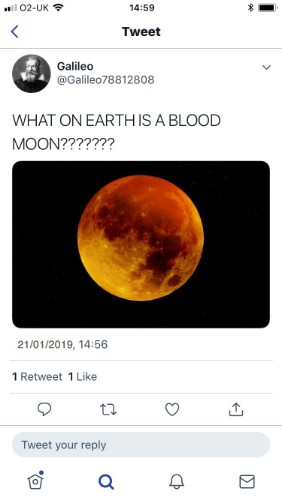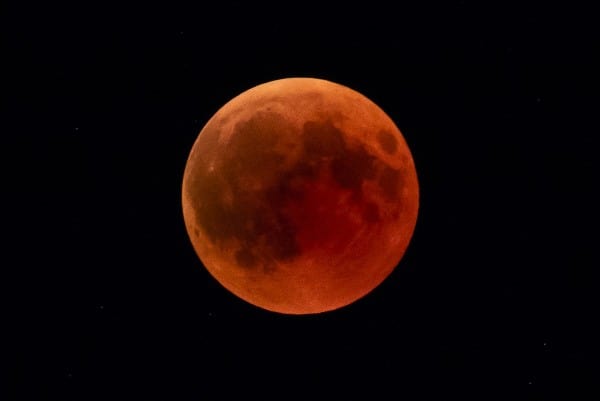*This post was updated 9th March 2020 following its original publication 21st January 2019.
Across the globe millions paused in awe and excitement to view last night’s ‘Super blood wolf moon’. Amateur and non-amateur stargazers assembled in droves, casual observers took to social media to share their photos and fascination and many more googled ‘what is a blood moon?’ Wouldn’t it be amazing to be one of the few who could give an informed answer to this trending question?
For thousands of years mankind has looked to the skies in contemplation, for resolve, for the possibility of determining or discovering some meaning, for imagining possibilities yet known, and, lest we forget for excitement, wonder and curiosity. It is this curiosity that drives innovation; intrigue in even the smallest thing can change how we view the universe and our place in it.
“If you look at a glass of wine close enough you will see the entire universe – there are the things of physics: the twisting liquid which evaporates depending on the wind and weather, the reflections in the glass, and our imagination adds the atoms” – Richard Feynman The Feynman Lectures on Physics: Caltech 1960
Astronomy bridges the divide between maths, physics, science, computer programming, engineering (all highly marketable skills). But also, due to the enormity of the subject, it has the ability to inspire great works of art and fiction, philosophy and politics, all key attributes for potential professional and personal development.

With the aspect of space tourism within sight, and the first ticket to the moon sold, interest in astronomy and related subject areas are on the rise and potentially valuable to emerging markets. With the right determination and chosen subjects you could find yourself on the forefront of an exciting new career prospect. Failing this, astronomy is a great hobby, particularly if you are unable to afford a ticket to the moon.
NEC is offering a new GCSE Astronomy online course. This course will cover topics relating to our own planet earth, the solar system and beyond. This is a fantastic opportunity to learn how stars and planetary systems are formed, how we interact with space, and with practical observations develop valuable scientific and mathematical skills. There are no formal entry requirements for this course (other than internet access and the ability to carry out observations of the night sky) but people with the motivation to launch their curiosity and boldly go where no person has gone before are always welcome!
And remember, Galileo switched vocation from medicine to maths and science after observing a swinging chandelier, leading to his discovery of the moons of Jupiter – imagine what route your journey could take?…
Click here to read our top tips for achieving your goals this year.


Add a new comment
Current comments: 0